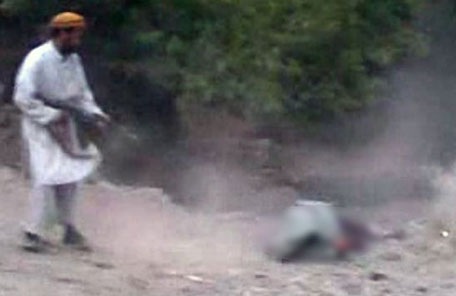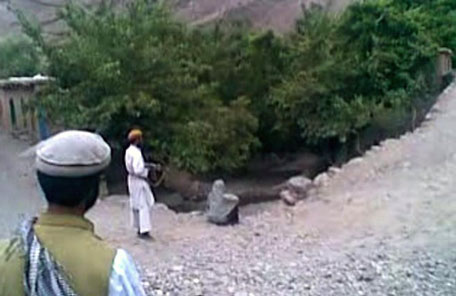
Kabul, July 9: A shocking video showing the public execution of a 22-year-old Afghan woman accused of adultery has sparked outrage.
The video shows her being shot repeatedly in the back in front of a baying crowd of bearded men in Parwan province just north of the capital Kabul.
The woman, named as Najiba, was married to a member of a hardline Taliban militant group and was accused of adultery with a Taliban commander, Parwan provincial spokeswoman Roshna Khalid said.
"Within one hour they decided that she was guilty and sentenced her to death. They shot her in front of villagers in her village, Qol," she said, adding that the execution took place late last month.
Following the shooting a villager handed the video over to the provincial government and "the security forces are preparing a big operation to find the culprits", she said.
The video opens with the woman, wrapped in a grey shawl, sitting at the edge of a ditch in a village surrounded by dozens of men, some perched on rooftops for a better view.
As she sits with her back to the crowd a bearded man is seen condemning adultery.
The video then shows a man in white being handed an AK47 rifle.
He approaches to within a couple of metres of the woman, aims and fires twice, missing each time. The third shot hits her in the back, she flings her arms wide and collapses.
He then fires another six shots into her body as the crowd cheers wildly. The shooter then fires four more shots into her body.






Comments
Add new comment